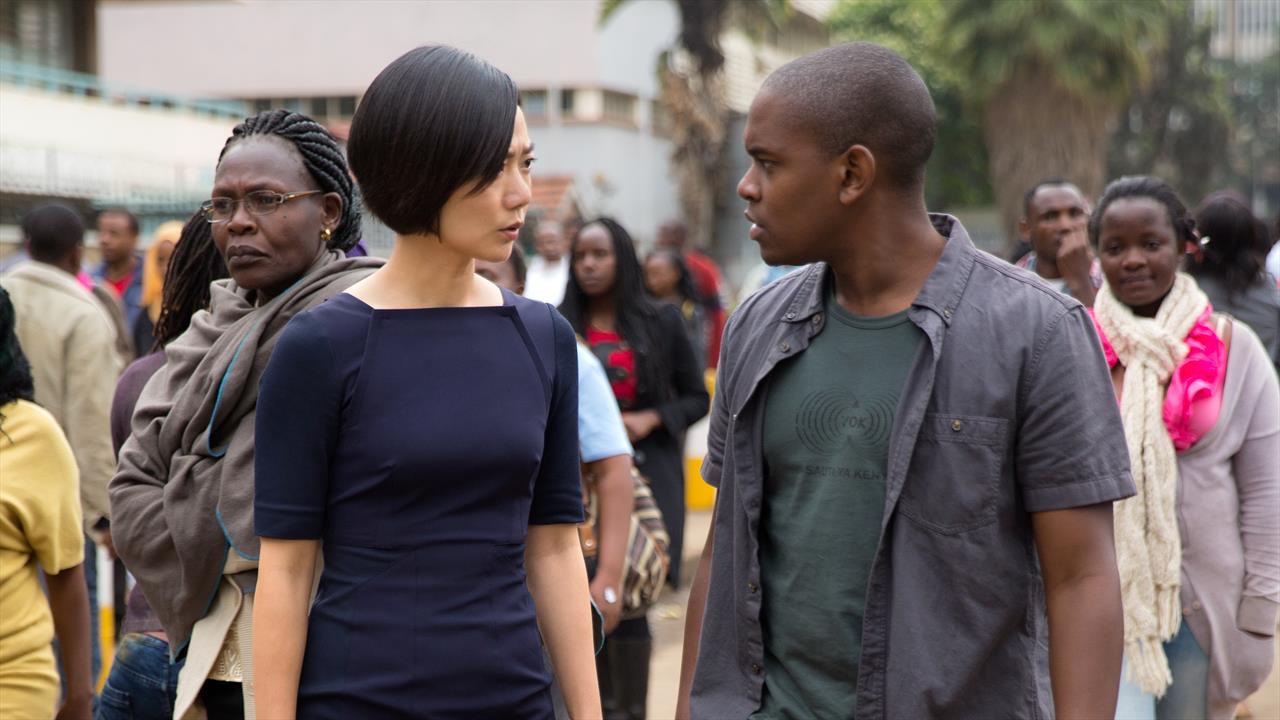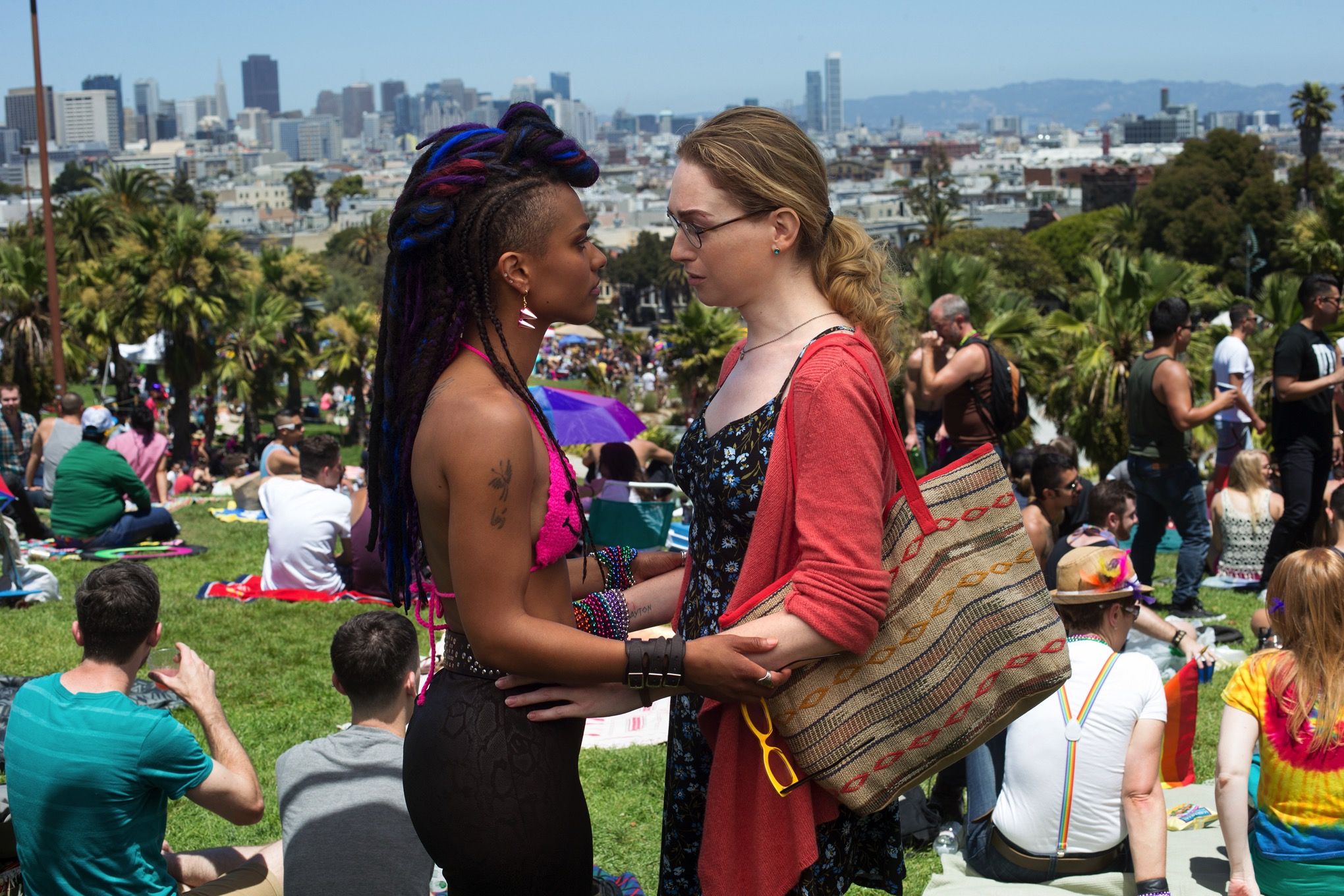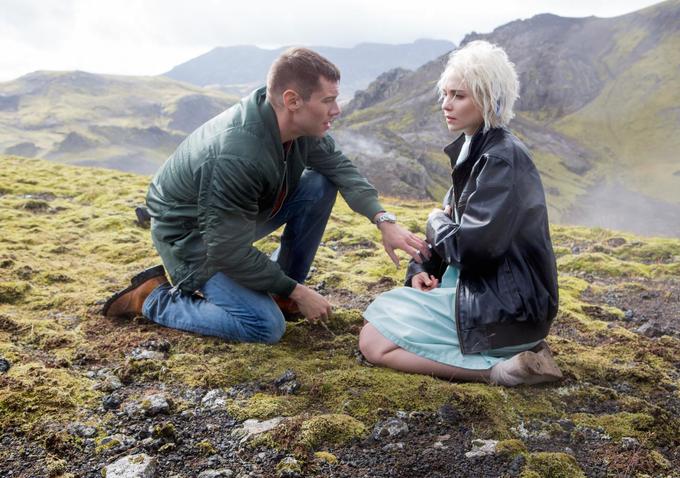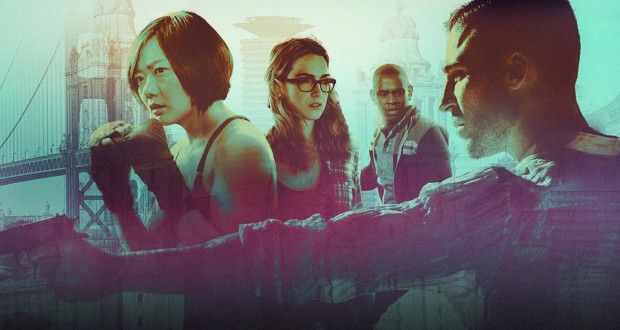As auteurs, the Wachowskis have some grand ideas. Trouble is, a grand idea needs excellent execution to hold it together. Too much philosophy with high scientific principles and you’ll lose the audience, not enough and the story will never make sense. Somehow, the Wachowskis have managed to meet both ends of the spectrum with their new Netflix series, Sense8.
The series follows the lives of eight interconnected people across the globe. They are connected by a kind of synaptic network that allows a kind of telepathy and semi-telekinesis through the inhabiting of connected sensate bodies. Confused yet?
The first episode opens on Daryl Hannah and Naveen Andrews discussing the birth of a new ‘cluster’ – the group of eight sensates we’ll follow through the next 12 hours. We immediately understand that there is a great threat to these people and their newly discovered abilities. But we have no idea why there is a threat, who is after them, what they want, and so on. With each new episode, I hoped I’d have some answers. I love a good mystery thriller, but I need to know more about the threat to really fear it. And unfortunately, even though I stuck with it to the bitter end, I still have no real answers.
 Whenever any of the sensates receive any information about the high concept scifi premise they are living in, it appears as a giant exposition dump. Of course, it sort of makes sense – they are learning about what is happening to them just as the audience is. But at the same time, dialogue that’s only point is to deliver information is dry – it feels like we are sitting in an auditorium for Psych 101. It makes the aspects of the scifi premise frustrating to hear, even though we get so little of it in the long run.
Whenever any of the sensates receive any information about the high concept scifi premise they are living in, it appears as a giant exposition dump. Of course, it sort of makes sense – they are learning about what is happening to them just as the audience is. But at the same time, dialogue that’s only point is to deliver information is dry – it feels like we are sitting in an auditorium for Psych 101. It makes the aspects of the scifi premise frustrating to hear, even though we get so little of it in the long run.
Meanwhile, I have to ask what the series is really even about? With all the philosophizing and the big ideas, I assumed it must be some kind of metaphor for something else. At first, it looked like it was another metaphor for how society treats ‘others’; be it transgender, other races, homosexuals, the mentally ill, and so on. And the premise naturally feels like that kind of statement – think the X-Men – but the ‘threat’ aspect, never being adequately defined, leaves the audience wondering. If they are being hunted because they are threat to ordinary humans, why are they being hunted by one of their own?
The violence that’s unforgivable is the violence we do to ourselves when we’re afraid to be who we truly are.
 The global reach of the premise also lends itself to a message of inclusion with a refreshingly diverse cast and characters represented. There are actors of many colours playing characters with different personal histories and sexual preferences. And while on the one hand I have to praise the Wachowskis’ inclusive representation, I despair at the stereotypical portrayals. A transgender woman with a strict, traditional family who are unwilling to accept her identity; an intelligent Indian woman struggling with ideas of marriage and faith; the son of thugs making the same mistakes in his adult life; courageous young man from Nairobi who will stop at nothing to get his mother the life-saving drugs she needs… While the characters are pleasantly diverse, the Wachowskis continue to give us the same tired presentations, even if they are representations we get to see on screen only rarely in the grand scheme of things.
The global reach of the premise also lends itself to a message of inclusion with a refreshingly diverse cast and characters represented. There are actors of many colours playing characters with different personal histories and sexual preferences. And while on the one hand I have to praise the Wachowskis’ inclusive representation, I despair at the stereotypical portrayals. A transgender woman with a strict, traditional family who are unwilling to accept her identity; an intelligent Indian woman struggling with ideas of marriage and faith; the son of thugs making the same mistakes in his adult life; courageous young man from Nairobi who will stop at nothing to get his mother the life-saving drugs she needs… While the characters are pleasantly diverse, the Wachowskis continue to give us the same tired presentations, even if they are representations we get to see on screen only rarely in the grand scheme of things.
 With so many balls in the air – eight characters with their own lives, a very high concept premise, as well as a convoluted mystery/conspiracy – it seems inevitable that the series should fail. How could they possible keep all these ideas running with equal quality for each as well as all the way through a 12-hour marathon of television? Some of the personal stories are better than others – with a few receiving shamefully little screen time or development (with Sun definitely being the worst off in terms of resolution of her personal predicament outside the scifi premise of the series). And while I understand that the world is a dark, ugly, unfair place, it would have been nice to have a little more lightness to the personal stories involved. When the series does work is when there are these glimpses of lighter moments – the hammy moments of Lito’s work, the solid and loving relationship of Nomi and Amanita, and Capheus’s love of Van Damme.
With so many balls in the air – eight characters with their own lives, a very high concept premise, as well as a convoluted mystery/conspiracy – it seems inevitable that the series should fail. How could they possible keep all these ideas running with equal quality for each as well as all the way through a 12-hour marathon of television? Some of the personal stories are better than others – with a few receiving shamefully little screen time or development (with Sun definitely being the worst off in terms of resolution of her personal predicament outside the scifi premise of the series). And while I understand that the world is a dark, ugly, unfair place, it would have been nice to have a little more lightness to the personal stories involved. When the series does work is when there are these glimpses of lighter moments – the hammy moments of Lito’s work, the solid and loving relationship of Nomi and Amanita, and Capheus’s love of Van Damme.
 The best thing I can say about the series is that the characters, though often tediously clichéd and stereotypical, still manage to draw the audience into their personal stories. If their own stories were divorced entirely from this high concept science fiction element, they could have worked. But lumped all together, it falls apart. What I took away as the overall ‘message’ of the series is how friends can help each other, how much we have to learn from everyone around us, and to never be too proud to ask for help. And if that was the way the Wachowskis had gone without overreaching, it might have been something great. As it is, it’s a confusing mess that never pulls together. Perhaps it will with a second season, but I’m not sure they’ll be given that opportunity (and I won’t be tuning in if they do).
The best thing I can say about the series is that the characters, though often tediously clichéd and stereotypical, still manage to draw the audience into their personal stories. If their own stories were divorced entirely from this high concept science fiction element, they could have worked. But lumped all together, it falls apart. What I took away as the overall ‘message’ of the series is how friends can help each other, how much we have to learn from everyone around us, and to never be too proud to ask for help. And if that was the way the Wachowskis had gone without overreaching, it might have been something great. As it is, it’s a confusing mess that never pulls together. Perhaps it will with a second season, but I’m not sure they’ll be given that opportunity (and I won’t be tuning in if they do).
Verdict: This one is tough to get through even for hardcore science fiction fans: there’s too much going on and never enough pay-off. After 12 hours on the sofa you’ll still be wondering ‘why’ and ‘what’. Give this a miss and watch Daredevil instead.
 Pop Verse Pop Culture Universe
Pop Verse Pop Culture Universe







2 comments
Pingback: Sense8: Definitely gay enough, but a little too white - CisternYard Media
Pingback: ‘Sense8’: Capheus Character Recast | TV Realm